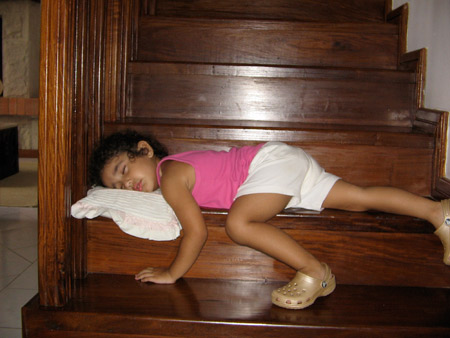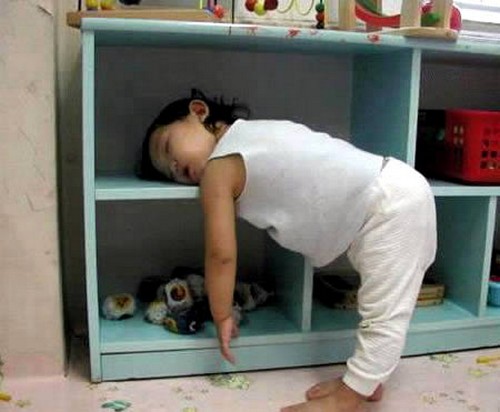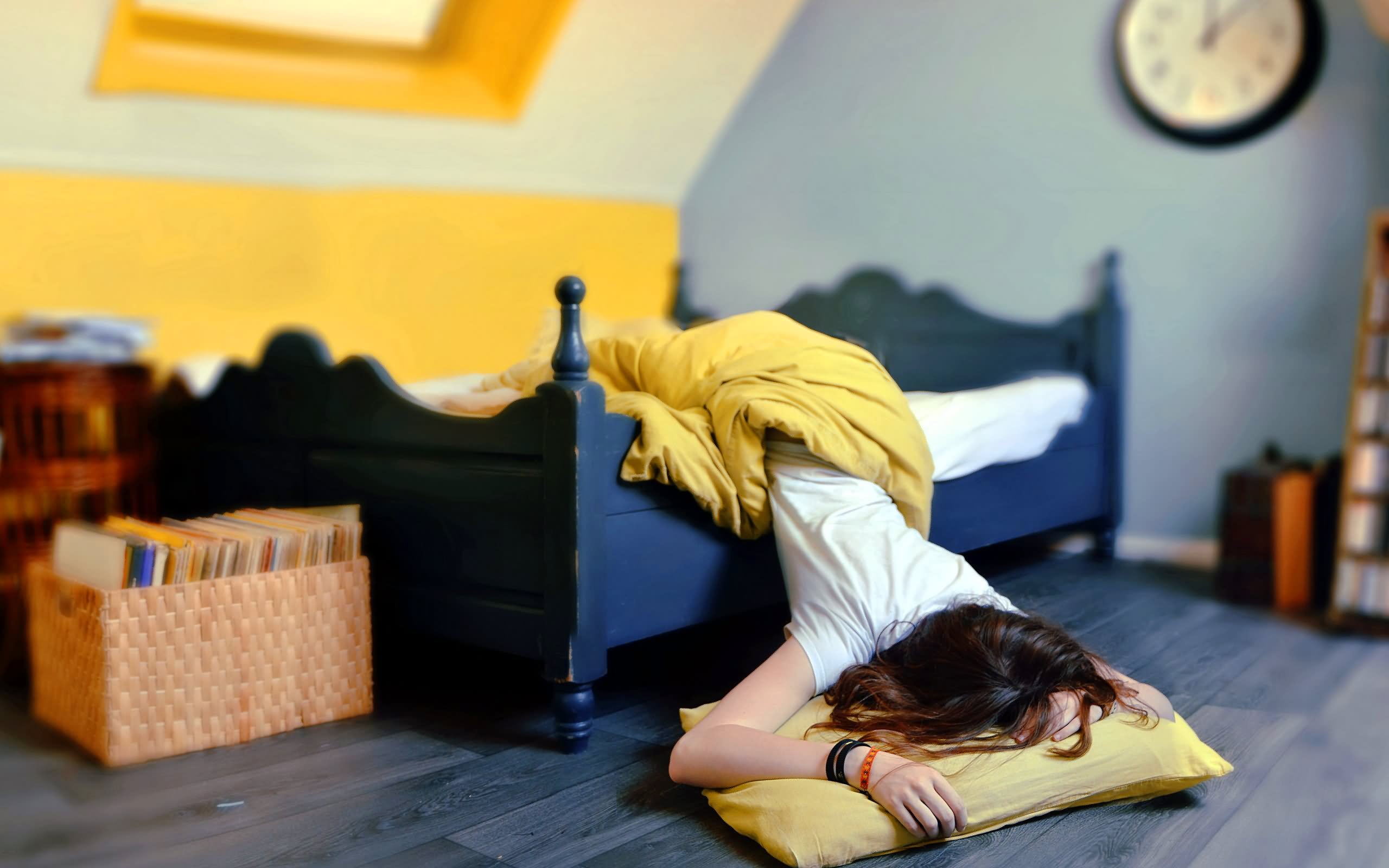As humans we spend an average of 25 years sleeping,
that’s a third of our life.
Find out more about Sleeping Facts and be amazed
about this fascinating feature of nature.
·
Adults who don’t get enough sleep tend to act
sluggish, but sleep-deprived children may be hyperactive.
·
Humans spend about a third of their lives
asleep.
·
One in five adults fail to get enough sleep.
·
Most dreams involve normal situations with
familiar people; bizarre, fantastic or intense dreams are rare.
·
A change in the body clock keeps most teens from
feeling sleepy until 11 p.m. or later.
·
Mild snoring is nearly universal - almost
everyone is likely to snore at one time or another.
·
More than half of adults report having
nightmares occasionally.
·
Drinking caffeine during the day can affect how
you sleep at night.
·
Sleepwalking tends to be a fairly normal part of
a child’s early sleep patterns.

·
No one knows if other species dream but some do
have sleep cycles similar to humans.
·
Elephants can sleep while standing or while
lying on the ground.
·
Children tend to fall asleep faster and sleep
longer when they go to bed before 9 p.m.
·
The record for the longest period of time
without sleep stands at 264.4 hours and was set by a high school student in
1964.

·
Most parents lose between 400 and 750 hours of
sleep in each child’s first year.
·
Only a doctor or medical professional can tell
if someone is actually awake or asleep because we are capable of taking short
cat naps with our eyes open and without losing our balance.
·
If it takes you less than 5 minutes to fall
asleep at night, you are sleep deprived.
On average, it takes people between 10 and 15 minutes to fall
asleep. If you are falling asleep
faster than that it means you are overtired.
·
Doctors didn’t discover REM (rapid eye movement)
sleep until the 1950’s and this discovery was a leap forward in sleep science.
·
Although there are several stages of sleep, we
do not progress through them in order while asleep. Most people will initially move from stage 1 to stage 4 in
order the first time, they will then jump back and forth between them.
·
Newborn babies spend amount 65% of their sleep
in REM.
·
Although scientists used to believe that we only
dreamt while in REM, new research indicates that we may actually be dreaming
the entire time we are asleep.
·
The dreams we experience during REM are very
different than the ones we experience during non-REM sleep.
·
We have no conclusive evidence as to whether
animals dream or not.
·
Some sleeping pills and sleep aids suppress REM
sleep which can be unhealthy over a period of time.
·
No one yet knows why we dream or what purpose
dreams serve but there are several hypotheses. The theories claim we dream to help our memory, to sort
through and store experiences, to “clean out” the unneeded information in our
brains, among other things.
·
British researchers have developed a pair of
glasses that can essentially reset a person’s body clock by projecting a ring
of bright light that mimics the sunrise into the eye. The spectacles have been used with soldiers and can allow
someone to go without sleep for as long as 36 hours, assumedly without experiencing
functional deficits.
·
You only have to be awake for 17 straight hours
to begin experiencing the symptoms of sleep deprivation. This includes functional deficits
similar to those experienced by people with a blood alcohol level of .05%.

·
Noises at night, especially those in the first
and last hours of sleep can disrupt the function of your immune system, even if
they don’t cause you to wake up.
·
Light exposure, even just to the glowing numbers
on an alarm clock can cause sleep disturbance even if it doesn’t wake you up.
·
You may find it very difficult to fall asleep if
the temperature of your room is too high.
In order to fall asleep, our body temperature has to decrease slightly
and if the room is too warm it can keep this from happening and keep us from
sleeping.
·
This is in stark contrast to the people of
France, who sleep on average 8.83 hours per day, the best country for sleep in
the developed world.
·
Some people can survive on much less, in fact 1%
to 3% of the population are known as ‘short sleepers’ who need less than six
hours a night.

·
Humans are the only mammals that delay sleep.
·
Insomnia is the most common sleep disorder.
·
Women sleep more than men.
·
Mothers who breastfeed and co-sleep get more
sleep in a 24 hour period than those that don’t.
·
Research shows that having a newborn baby
impacts men’s sleep more than women’s.
·
Are you a creative person? Research shows you’ll
sleep more but not as well.

·
Those who fly regularly for work could be more
at risk of sleep deprivation. Flying at high altitudes leads to disturbed sleep
due to the lack of oxygen.
·
Three quarters of those who suffer from
depression also suffer from a lack of sleep.
·
Getting less than 7 hours sleep each night can
make you angry, sad and stressed.
·
One sleepless night affects your brain in the
same way as being drunk.
·
Research shows a lack of sleep can cause weight
gain.

·
Adults who sleep for less than 7 hours a night
are more likely to report suffering from asthma, cancer and diabetes.
·
Too much sleep can increase your chances of an
early death.
·
The perfect nap, according to NASA, lasts for 26
minutes.
·
During REM sleep chemicals in your brain
paralyse your muscles to stop you acting out your dreams.
·
Using your phone or a tablet before bed can
affect your sleep.
·
Any light before bed isn’t good for getting off
to sleep, however the blue light emitted by technology is twice as bad!

·
Sleeping under a weighted blanket can improve
your sleep and has even been proven to help those who suffer from insomnia and
anxiety.
·
Having a regular massage is shown to improve
sleep.
·
30 minutes of exercise each day correlates with
14 extra minutes of sleep per night.
·
Meditation has been shown to improve sleep.
·
Sleeping on your back is the best position for
your health as it allows your back, neck and spine to rest in a neutral
position.
·
The wealthiest Egyptians slept with
uncomfortable neck supports rather than pillows to save their elaborate
hairstyles.

·
During pregnancy women are advised to sleep on
their side rather than on their back, as the latest research shows that the
risk of stillbirth is doubled if a pregnant women sleeps on her back in the
third trimester.
·
When suffering from depression you dream up to 3
to 4 times more than you normally would.
·
Research shows that those raised with a black
and white television are more likely to dream in black and white
·
Violent dreams can be the sign of a brain
disorder including dementia.
·
Women are found to have more nightmares than men
and also have more emotional dreams.
·
Those who go blind later in life can still see
visually in their dreams.

·
Dutch researchers found that sleeping with your
socks on can increase your ability to reach an orgasm.
·
Trees go to sleep at night, relaxing their
branches in the morning and perking them up at night.
·
Secretion of melatonin, the sleep inducing
hormone, is impacted by light and by blue light in particular.

·
More and more companies in Japan are encouraging
their staff to sleep on the job as they believe it improves productivity.
·
Mental health and wellbeing is an area that is
significantly impacted by a lack of sleep.



No comments:
Post a Comment